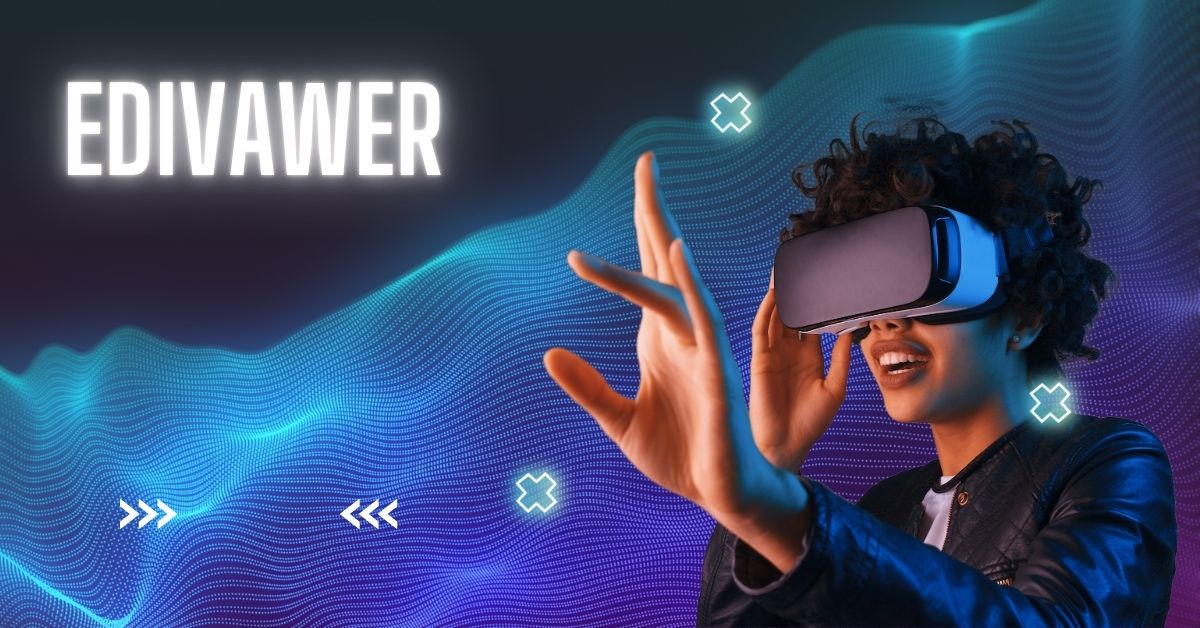In a rapidly changing digital era, a new term has begun to emerge in conversations around technology, creativity, and education—Edivawer. Although it may sound like another futuristic tech brand, Edivawer is shaping up to be far more than that. It represents a new philosophy of innovation, merging technology, human adaptability, and ethical digital development into one evolving ecosystem.
This in-depth exploration breaks down what Edivawer is, its underlying vision, and why it might become one of the most defining concepts of modern digital transformation.
What Is Edivawer?
Edivawer is best understood as a digital innovation framework that aims to bridge human creativity with advanced technologies like artificial intelligence (AI), cloud computing, machine learning, and data analytics. The concept promotes adaptive design and sustainability, encouraging digital tools and systems that evolve as quickly as human needs do.
Rather than existing as a single product or software suite, Edivawer operates like an idea incubator — guiding developers, educators, and organizations to integrate smarter, more ethical, and more user-centered solutions into their systems.
At its core, Edivawer encourages:
- Design thinking that revolves around people.
- Data-driven adaptability to change.
- Technological responsibility for the digital future.
The Foundational Philosophy of Edivawer
The backbone of Edivawer can be summarized into three interlocking principles: Human-Centricity, Sustainability, and Adaptability.
1. Human-Centric Design
Edivawer begins with people — their emotions, needs, and limitations. It challenges the old mindset that technology should dictate user behavior. Instead, it promotes digital environments that learn from users and adapt to their preferences.
In educational settings, for instance, Edivawer-inspired systems could personalize learning experiences by analyzing engagement patterns and modifying content delivery accordingly. This approach could make digital learning platforms more inclusive, intuitive, and empowering.
2. Sustainability Through Technology
The concept of sustainability in Edivawer isn’t limited to environmental responsibility. It extends to technological longevity — systems that can be maintained, upgraded, and scaled without obsolescence.
This future-minded approach ensures that tools built with Edivawer principles can remain relevant for decades, not just years. It encourages developers to adopt renewable data models, green computing practices, and long-term design strategies.
3. Adaptability as a Core Trait
Adaptability in Edivawer means anticipating change rather than reacting to it. By utilizing predictive analytics and intelligent automation, the Edivawer ecosystem prepares organizations for upcoming shifts in market trends, learning demands, and social behavior.
In simple terms, Edivawer transforms adaptability into a built-in reflex — systems evolve with the world, not against it.
Edivawer in Practice: The Technology Behind the Vision
While Edivawer is conceptual at its core, it’s supported by tangible technologies that bring its philosophy to life. The framework relies on several interconnected pillars:
Artificial Intelligence and Automation
AI forms the backbone of Edivawer. Machine learning models analyze data patterns to optimize decision-making processes, automate repetitive tasks, and provide predictive insights. Whether in business or education, AI-driven automation boosts efficiency while reducing human error.
Cloud Infrastructure
Edivawer thrives on connectivity. Through cloud-based ecosystems, users gain access to scalable, flexible environments that can host learning platforms, analytics dashboards, or creative digital spaces. Cloud computing ensures that Edivawer-powered systems can expand dynamically as user bases grow.
Data Analytics
Information is the lifeblood of modern innovation. Edivawer emphasizes data transparency, accuracy, and ethical collection. Its analytic engines help organizations extract actionable insights from large data sets — transforming numbers into meaningful strategies.
Cybersecurity and Digital Ethics
In a world filled with cyber threats and misinformation, Edivawer introduces an ethical layer to digital transformation. It advocates for security-first design, encryption integrity, and privacy protection, ensuring that innovation doesn’t come at the cost of user trust.
Edivawer in Education and Learning Management
One of the most practical applications of Edivawer lies in digital learning environments. The framework envisions a new era of Learning Management Systems (LMS) that are interactive, adaptive, and deeply human.
Personalized Learning Paths
Edivawer-based LMS platforms can analyze a learner’s strengths, weaknesses, and interests, crafting personalized study paths that maximize engagement and retention.
Collaborative Learning Environments
The concept promotes interactive learning communities where students, mentors, and experts collaborate in real-time. Group projects, discussion boards, and peer evaluations become more dynamic and insightful.
Analytics for Educators
For instructors, Edivawer offers intelligent dashboards that measure student performance, predict outcomes, and suggest course improvements — all powered by data-driven intelligence.
Scalability for Institutions
Schools, universities, and corporate training departments can scale their learning infrastructure easily through Edivawer’s cloud architecture, adapting seamlessly to growing user demands.
Edivawer for Businesses and Digital Enterprises
Beyond education, Edivawer’s philosophy has immense value for business innovation. Companies seeking to modernize operations, enhance brand engagement, and streamline workflows can integrate Edivawer principles to achieve digital excellence.
Workflow Automation
AI-driven automation reduces manual work, freeing employees to focus on creative and strategic tasks. Edivawer-inspired systems automate report generation, scheduling, and data entry, leading to higher productivity.
Enhanced Customer Engagement
Through behavioral data and adaptive interfaces, businesses can deliver customized experiences to each customer. Edivawer’s human-centric design transforms customer journeys into personalized narratives.
Sustainability and Efficiency
By optimizing resource use and promoting long-term digital stability, Edivawer helps organizations reduce waste and environmental impact.
Data Security and Compliance
Modern enterprises face strict data regulations. Edivawer introduces compliance frameworks that align with GDPR and global privacy standards, ensuring businesses maintain ethical integrity.
Edivawer’s Impact on Creative Industries
Interestingly, Edivawer doesn’t limit itself to corporate or academic domains. Artists, designers, and content creators are also adopting its core philosophy.
Digital Creativity Meets Technology
Edivawer merges artistic creativity with data intelligence — helping designers understand audience preferences through analytics while maintaining artistic integrity.
AI-Assisted Art
Imagine generative art tools that adapt to user style and emotional tone. With Edivawer principles, these tools evolve over time, learning from creative choices to deliver personalized inspiration.
Cross-Platform Collaboration
Edivawer’s cloud and communication layers make it possible for global creative teams to work together seamlessly, sharing assets, feedback, and revisions in real time.
Ethical Dimension of Edivawer
Perhaps the most revolutionary part of Edivawer is its ethical stance. In an era where data exploitation and misinformation dominate headlines, Edivawer champions transparency and accountability.
It promotes:
- Open data policies that respect user consent.
- Algorithmic fairness to avoid bias in AI systems.
- Responsible innovation, where profit never outweighs integrity.
This moral backbone distinguishes Edivawer from other digital frameworks that focus solely on performance and scalability.
Challenges and Limitations
Despite its inspiring vision, Edivawer faces a few real-world challenges that developers and organizations must address:
- Learning Curve – Integrating multiple systems under Edivawer’s umbrella can be complex initially.
- Cost of Implementation – Advanced AI and cloud infrastructure can require significant investment.
- Scalability Issues – While designed for expansion, some legacy systems may resist smooth integration.
- User Adaptation – Encouraging teams to adopt a new digital philosophy requires cultural change, not just technology.
However, these challenges are not barriers—they are opportunities for refinement. As Edivawer evolves, it promises to deliver simpler and more accessible frameworks for every digital environment.
The Future of Edivawer
Edivawer is still in its formative stage, but its potential is undeniable. It’s not just a fleeting trend or another software name — it’s a mindset that reshapes how humans interact with technology.
Looking ahead, we can expect Edivawer to influence:
- Next-generation educational platforms focused on adaptive learning.
- AI-driven business ecosystems where decision-making becomes intuitive.
- Creative AI tools that blend human emotion with computational precision.
- Sustainable tech infrastructures that prioritize the planet as much as profit.
The concept could very well evolve into a global movement — one that redefines what it means to innovate responsibly.
Conclusion
Edivawer represents more than a digital transformation; it embodies a new age of meaningful innovation. It merges human intelligence with machine capability, sustainability with adaptability, and creativity with ethics.
From education to enterprise, Edivawer’s influence promises to create smarter, fairer, and more empathetic digital ecosystems. In essence, it reminds us that the future of technology doesn’t belong solely to machines — it belongs to those who design them with purpose.
Edivawer is not just the next big thing; it’s the next right thing for a more balanced digital world.
FAQs About Edivawer
1. What exactly does Edivawer do?
Edivawer serves as a digital innovation framework, combining AI, data analytics, and ethical design to build adaptable and sustainable technology systems.
2. Is Edivawer a product or an idea?
It’s primarily a concept and methodology, though it may inspire real-world software or platforms that embody its philosophy.
3. Where can Edivawer be applied?
It can be applied in education, business management, creative industries, and data-driven digital ecosystems.
4. What makes Edivawer different from other digital systems?
Edivawer integrates human-centric design and ethical responsibility at its core, ensuring technology serves people—not the other way around.
5. Is Edivawer accessible for small organizations?
Yes. While initially conceptualized for large ecosystems, Edivawer principles can be scaled down to fit small businesses and startups focusing on digital growth.

